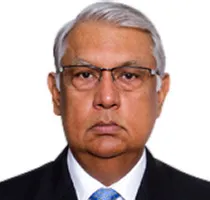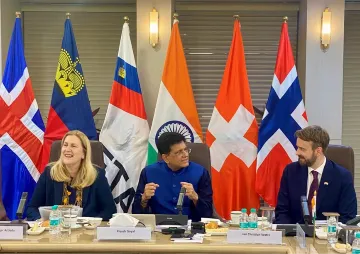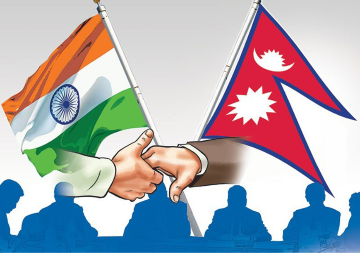Robert Mugabe, the 93-year-old president of the East African country of Zimbabwe, has finally quit under pressure from the military and his own ZANU-PF Party.
A BLOODLESS COUP
Mugabe led Zimbabwe's fight for independence in the 1970s. He came to power in 1980, and his 37-year autocratic rule has been marked by corruption, repression of opposition, manipulation of elections and economic decay. Parliament’s decision to launch impeachment proceedings against Mugabe tipped the scale against him.
Defiant till the end, the bloodless coup left no exit route for the beleaguered leader who has been under house arrest by the military. His tenure at the helm of power for over 37 years, made him one the longest-serving leaders of any country in the world.
Zimbabwe is a landlocked country which was colonised by the South African Company of Cecil Rhodes and its territory was demarcated in 1890s. In 1923, it became a self-governing colony of Southern Rhodesia.
The white minority government of Ian Smith declared unilateral independence and the country remained isolated and unrecognised during the war of independence led by Robert Mugabe of ZANU and other leaders like Bishop Abel Muzorewa and Joshua Nkomo, leading different groups fighting for freedom.
Upon emerging as an independent nation after a 15-year guerrilla war, following a peace agreement in 1980, the country adopted the name new name Zimbabwe. Mugabe became prime minister 1980 and later president.
AN INEVITABLE END
Mugabe’s political career had to end. It was inevitable. A whole generation of Zimbabweans has not known any other leader but Mugabe. Mugabe’s exit opens a new a chapter for Zimbabwe, marked by hope and uncertainty. The people of Zimbabwe have greeted Mugabe’s exit with celebrations on the streets. There was jubilation in Parliament too when the Speaker announced that Mugabe had submitted his resignation.
The mantle of leadership now shifts to former Intelligence Chief and Vice-President, Emmerson Mnangagwa who has gained the upper hand in the ruling party. Mnangagwa is a freedom fighter who goes by the nickname of “the Crocodile”.
The military likely acted against Mugabe after obtaining the green signal from the party.
THE CHINA ANGLE
An interesting twist to the coup in Harare has been speculation about the role of China. The military moved against Mugabe soon after the visit of the Army chief General Chiwenga to Beijing.
China has huge commercial stakes in Zimbabwe ranging from tobacco, diamonds, power generation and is the country’s most important foreign benefactor. China has been anxious and angry with Mugabe’s enforcement of an “indigenisation law” which requires foreign companies to have majority black Zimbabwean ownership.
This law had irked China. China may have subtly backed the military and Mwangagwa, preferring this combine to the coterie led by Mugabe’s wife Grace, given the latter’s legendary reputation for corruption. Beijing has bankrolled Mugabe and his wife for years and will cosy up to Mwangagwa now.
Zimbabwe is a classic example of China’s neo-colonial approach and economic intervention in Africa in search of natural resources and markets. China has effectively bought off local governing elites in African countries in return for favours and contracts for Chinese companies.
Problems have arisen with Chinese labour working on infrastructure projects. Africans have found themselves excluded from such projects and protest demonstrations have taken place in several African countries where such predatory Chinese practices have been practiced in collusion with corrupt governing elites. Popular resentment against China has been growing as a result China’s predatory approach.
Mnangagwa was fired from his position earlier in this month and went into exile. He has returned to Harare and is expected to be sworn in as the new President. The ZANU-PF, the ruling political party, long dominated by Mugabe all these years has seen a lot of infighting.
Till the sacking of Mwangagwa, a former comrade-in-arms in the freedom struggle and Mugabe’s right-hand man, appears to have triggered the revolt against him. Mugabe was ousted from the presidency of the party and became a target of an impeachment move. Mugabe’s unpopularity in his country of 16 million people had risen rapidly as the economic situation worsened, inflation increased and job opportunities for the youth evaporated. By backing his wife Grace Mugabe’s political ambition, he lost the support of his party and the military.
A NEW DEAL
Mugabe’s future is uncertain. It seems unlikely that Mugabe will face any retribution. Reports suggest that he may have negotiated a deal that would protect his future and also facilitate the transfer of power in a constitutional manner. Such a deal would, in all probability, allow him to retire quietly, provide immunity from prosecution, a reasonable pension and not interfere in politics henceforth.
Such coups have been rare in countries of southern Africa and Zimbabwe’s new leaders will want to protect civilian rule. An outright military coup will lead to sanctions and diplomatic isolation that the country can ill afford. Military leaders have been careful and have publicly stated that they were acting in country’s interest and also in Mugabe’s interest.
Mwangagwa has been conciliatory in his public remarks saying that it was important for all Zimbabweans to join hands and rebuild the nation. Zimbabwe heads for national elections next year in August and the million dollar question is whether Mwangagwa who comes from the same authoritarian political stock as Mugabe, will turn out to be any different, having being the intelligence chief and Mugabe’s enforcer for decades.
This commentary originally appeared in Catch News.
The views expressed above belong to the author(s). ORF research and analyses now available on Telegram! Click here to access our curated content — blogs, longforms and interviews.




 PREV
PREV

